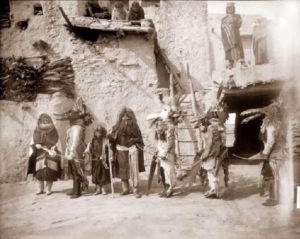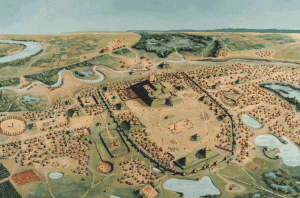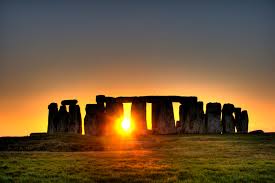Though Christmas is the winter holiday many Americans celebrate, people over the world and throughout time have celebrated and enjoyed holidays during the winter. The winter solstice, the time when the North Pole tilts furthest away from the sun, has been celebrated by many nations. Neolithic and Bronze Age peoples have famously left the Stonehenge and Newgrange (Ireland) sites as evidence of their solstice celebrations. Woodhenge, a circle of posts within Cahokia Mounds State Historic Site in Illinois, marks both solstices and equinoxes. The city containing these mounds existed between 600-1,400 AD and are the remains of an advanced Mississippian culture.
The Hopi Soyaluna is a winter solstice festival occurring on December 22nd. When the Sun God has traveled as far from the earth as he can, Hopi warriors bring him back through festival activities. The core of the festival occurs when members of the tribe dress as snakes, warriors and the Sun God himself to re-enact the solstice story. The black Plumed Snake symbolizes the (evil) forces which drive the sun away, so prayers are offered to persuade him not to swallow the sun forever. (This “swallowing” image recalls the way an eclipse looks.) The warriors offer gifts, and eventually the sun returns.
This festival is also a time to exchange good wishes for the new year. Preparations for the festival include making and giving away pieces of cotton string tied with feathers and pinyon needles at one end. When a person gives this string to another, he says that he hopes the Katchinas (spirits of Hopi ancestors) will grant the recipient’s wishes the following day.
______________________________________________________________________________________


